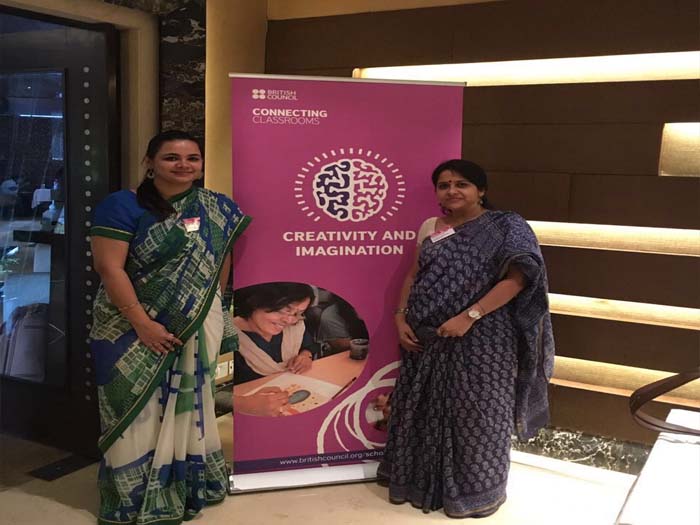British Council workshop: Introduction To Core Skills
The British Council organised a professional development programme for educators at Hotel Surya on 29th July 2016. Close to 200 educators from schools across North India participated in the Introduction to Core Skills workshop as a part of the Councils Connecting Classrooms programme.
The day long workshop had two parallel sessions - Introduction to Core Skills for Leaders. This was primarily for principals and school management representatives while Introduction to Core Skills for Teachers was targeted to teachers, coordinators and teacher trainers. The former workshop was attended by Vice Principal of our School, Dr. Anu Singh and the latter by Ms. Gandharvi Mukherjee.
It was explained that to effectively participate in a global economy, young people need to be equipped with core skills, which supplement the traditional curriculum and subject-focused approach of many education systems. The core skills are also referred to as 'deep-learning skills', 21st century skills or core skills and competencies. These are skills that will enable teachers to help young learners become skilled and globally competitive.
[gallery link="file" columns="2"]
The programme aimed at benefiting teachers, allowing them to draw upon a wide range of resources to nurture core skills in their learners.
It offered support to teachers to develop their pedagogy in the six core skills and competencies namely-
Critical Thinking and Problem Solving,
Communication and Collaboration,
Creativity and Imagination,
Citizenship,
Digital Literacy and
Student Leadership and Personal Development.
We, the participants, were divided into groups for the day. It was interesting to mingle with our counterparts from other states, namely Punjab, Maharashtra and Uttar Pradesh, etc. We were asked to introduce ourselves and then name qny one thing that we like being with. Water, tree, book, rock, wind, the replies were as distinct and interesting as the people sitting in the room! A novel idea indeed to break the ice! What followed was a fun-filled journey of exploration and learning.
Participants were exposed to a wide variety of activities to enhance their understanding of the need to introduce the core skills in students. One such activity was when each group was asked to draw a tree. The scene resembled
one that we as teachers are accustomed to seeing in our classes during group activities. AN initial hesitation lent way to excitement and soon great minds got to work!
The result was very exciting! Elaborate art work came up on each table. Trees in varied shapes and sizes were the insignia of beauty, some laden with apples, some with birds nests, as the child in each one of us prompted us to embellish our work. Alas, in our enthusiasm, we all missed the most essential part of a tree, the roots! Roots symbolise depth.
We were quick to realize where we educators need to divert our attention! Deep-learning and not simply surface learning is the need of the hour and the most essential tool for a childs development.
Highlighting the importance of each core skill, the innovative group activities designed so, made the session enriching and entertaining. The programme expected to systematically introduce teachers to tue concept and give them a flavour, as it were, to support the development of core skills along with academic content. Undoubtedly, a start had been in the right direction.
We look forward to attending the next session of the workshop in September.
Ms. Gandharvi Mukherjee.













